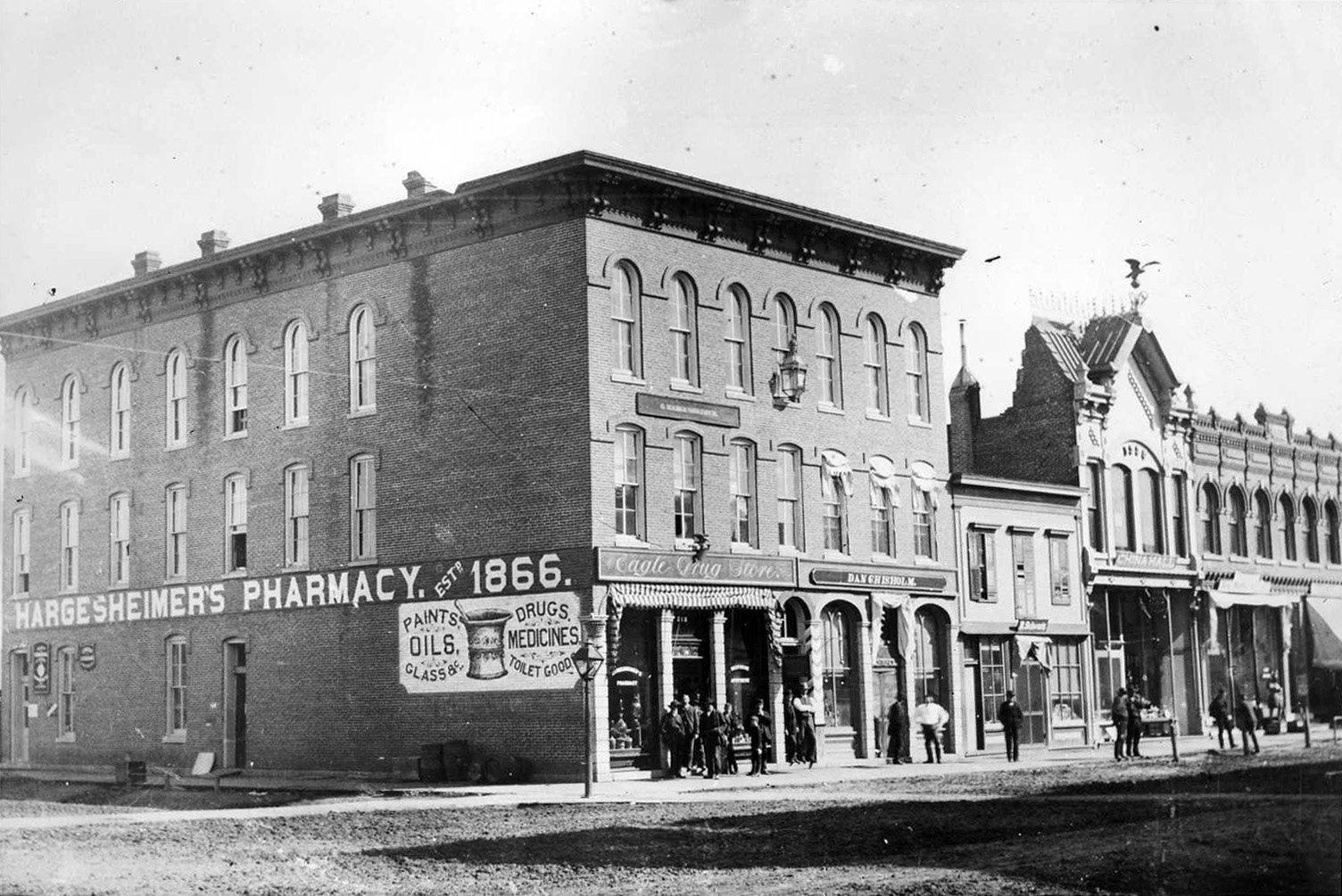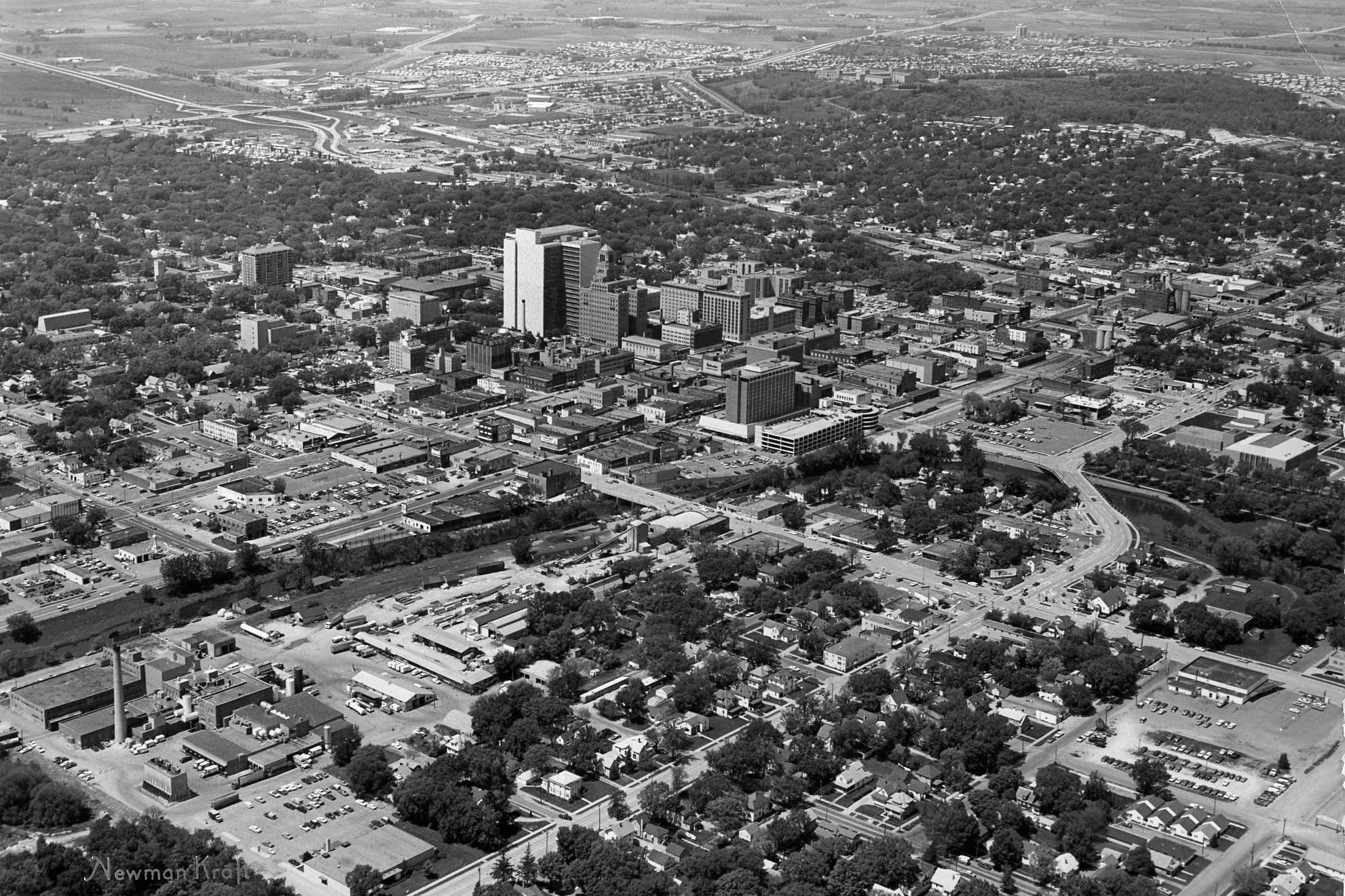In anticipation of a city’s growth, the prospect of novel buildings and worldly attractions often eclipses concerns about small businesses and historic preservation. Those small businesses, as well as the historic buildings that house many of them, will be among the many facets of Rochester that will be affected in dramatic ways.
The innermost threads of what gives downtown Rochester its identity will be transformed over the next 20 years. Many members of the community we spoke with worry that small businesses downtown are going to be pushed out of their current locations to make way for much bigger franchises that cater to the tourists visiting the city.





We know the physical presence of DMC isn’t going to fully enter Rochester in the form of buildings and infrastructure for a few years, as funding is still being accrued. However, many of these issues are already starting to be discussed.
"It is bringing a great detail of conversation in the community," said City Council President Randy Staver. "And I think one of the things, no surprise, that we're finding out [is] there are a great number of interests, and a great deal of passion that people have for some of those interests."
If little else, we know DMC is going to transform downtown Rochester in a very tangible way over the next 20 years. According to DMC officials, there are already $400 million worth of projects in the works right now.
Existing business
Some owners are skeptical of how DMC is going to affect their business and are quick to throw the plan to the dogs under the assumption they will be pushed out by the growth and demand for new businesses. But Gary Smith, president of Rochester Area Economic Development, Inc., does not think this is the case.
“It’s easy to perhaps blame DMC but I think there’s a lot more to it than just that," he said. He commented that economic growth has been happening over several decades and is still happening today.
Many downtown business owners are preparing for the rapid change. David Hewitt, co-founder of the Cube, a coworking space on Broadway, said "businesses need to continue to adapt and be flexible and be competitive during these changes."
"A lot of times small businesses get comfortable and they try to fight change or they blame the change for why they are no longer relevant in the market," he said, noting that many business are going to experience "some growing pains through DMC."
New business
Despite concerns about the rising cost of doing business downtown, many local and outside entrepreneurs are excited for what DMC will bring to Rochester. Traci Downs, owner of Area 10 Labs, is one of those hopping on board early.
Downs and her husband, Hunter, are working on a $3 million project to renovate the historic Conley-Maas building on Fourth Street. Their plans call for the space to be turned into an incubation laboratory for high-tech entrepreneurs.
“DMC, in my mind, is having this synergy between Mayo and the rest of Rochester,” said Downs. “It’s going to be great for the city.”
Planners expect the city to add about 320,000 square feet of retail, dining, and entertainment space over the next 20 years. In the same amount of time, the amount of space downtown devoted to bio-med-tech is expected to increase five-fold.
“DMC is all about … a vibrant attractive community where patients can see unique things and it’s very attractive for both workers to live and experience, as well as patients," said Hewitt. "By being the center of a great movement, we all benefit.”
Though not all will come to fruition, the DMC master plan, which was adopted by both the DMC Corporation Board and city council, proposes many new and exciting additions to Rochester.
In an interview earlier this year with the Med City Beat, DMC master planner Peter Cavaluzzi said, "there’s so much already here that we can grow and advance.”
According to his plan to upgrade the city, Rochester will be divided up into six sub districts: The Heart of the City, Discovery Square, Downtown Waterfront, Central Station, St. Mary’s Place, and UMR and Recreation Area.
Discovery Square and Heart of the City are especially significant, given that they have been named two of the top priorities for DMC over the next five years.
The DMC plan describes the Heart of the City as "a cross-roads where Mayo Clinic, commercial, hospitality, retail and residential meet.” As for Discovery Square, the plan states this sub district will merge Mayo Clinic with private industry to promote integration and communication.
“How do we keep adding to that energy? How do we make that the soul of our community?” were some of the questions proposed by Patrick Seeb in regards to the current state of downtown Rochester.
As the newly-hired DMC director of economic development and placemaking, Seeb said creating more energy downtown is important to the success of DMC.
"What makes cities special and unique are those local businesses," said Seeb. "If you walk down First Avenue or Third Street ... you see this very interesting fabric of businesses, whether their antiques or local restaurants or retail shops, it's pretty attractive. It's really important that we retain those."
But the excitement over new downtown development is already having some adverse affects. Real estate values are increasing rapidly, causing a spike in property taxes. Some downtown businesses owners told us they have seen their taxes go up by 60 to 100 percent over the past three years.
Rochester as we know it
Much of Rochester’s history is concentrated in the downtown area. We spoke with several people who told us that Rochester will struggle to maintain its identity unless significant steps are taken to preserve its oldest structures.
One community member in particular, John Kruesel, owner of an antique shop on historic Third Street, is very passionate about the issue of historic preservation in the downtown area.
Kruesel identified himself as someone who has been working to preserve the buildings of Rochester for a long time and is concerned that after DMC, the fabric of downtown small business will be completely gone.
Kruesel fears, “there will be no small business in this community in the future. We are going to lose ourselves, we are going to lose our personality, we are going to lose our fabric.”
Kruesel, like many others we spoke with, has been waiting "with bated breath" for an ordinance that might save these buildings.
“The only time were going to have an ordinance of any consequence is when there is nothing left,” said Kruesel. At an October meeting of the Historic Preservation Commission, a proposed ordinance was approved and sent to the city council, which is now in the process of reviewing it.
However, others in the community think that, while preserving historic buildings is worthwhile, there needs to be a realization surrounding the economic feasibility of their preservation.
Professionals like Smith and business attorney David Pederson, who is also a member of the HPC, asked questions like: What is the purpose of keeping the building? What will it be used for? Who will maintain it?





With the economic growth, Pederson said the reality is some of the older buildings in town will "have to come down."
He said not all buildings can be saved, and unless owners want to find some other use for the space that makes sense economically for the owner and the community, they may not last much longer.
“I tend to believe that if we are going to mandate a property owner maintain his or her building for the benefit of the public than the public really ought to pay for it,” said Pederson.
What ultimately happens with the aforementioned ordinance could help determine the fate of many historic buildings in downtown Rochester.
One that we know won't be demolished in our lifetime is the historic Chateau Theatre. The city, with the help of Mayo Clinic, recently purchased the building with plans to repurpose it into a venue for arts and culture. A community task force is currently in the process of coming up with ideas for its future use.
Elizabeth Richards is a student at the University of Minnesota Rochester. She wants to pursue a career as a chiropractor.




